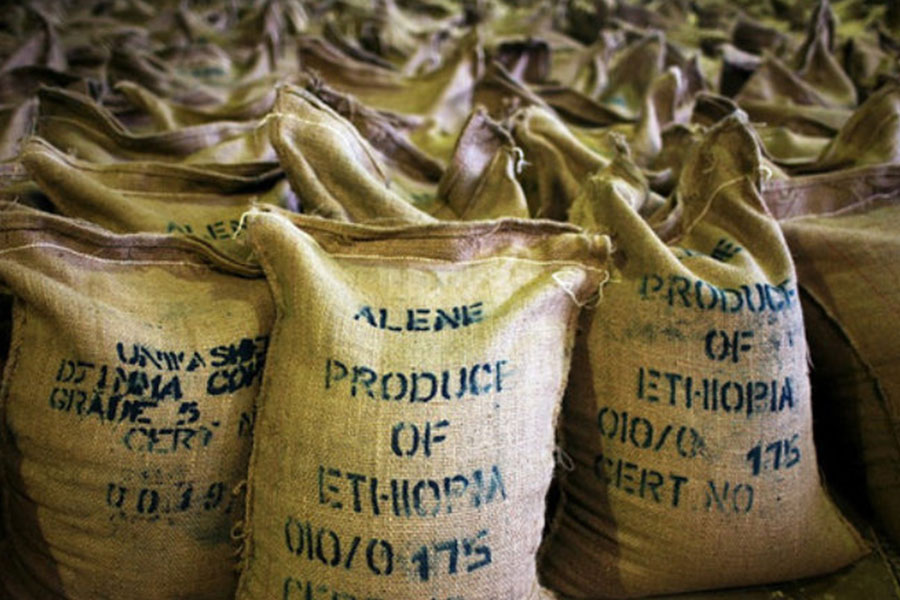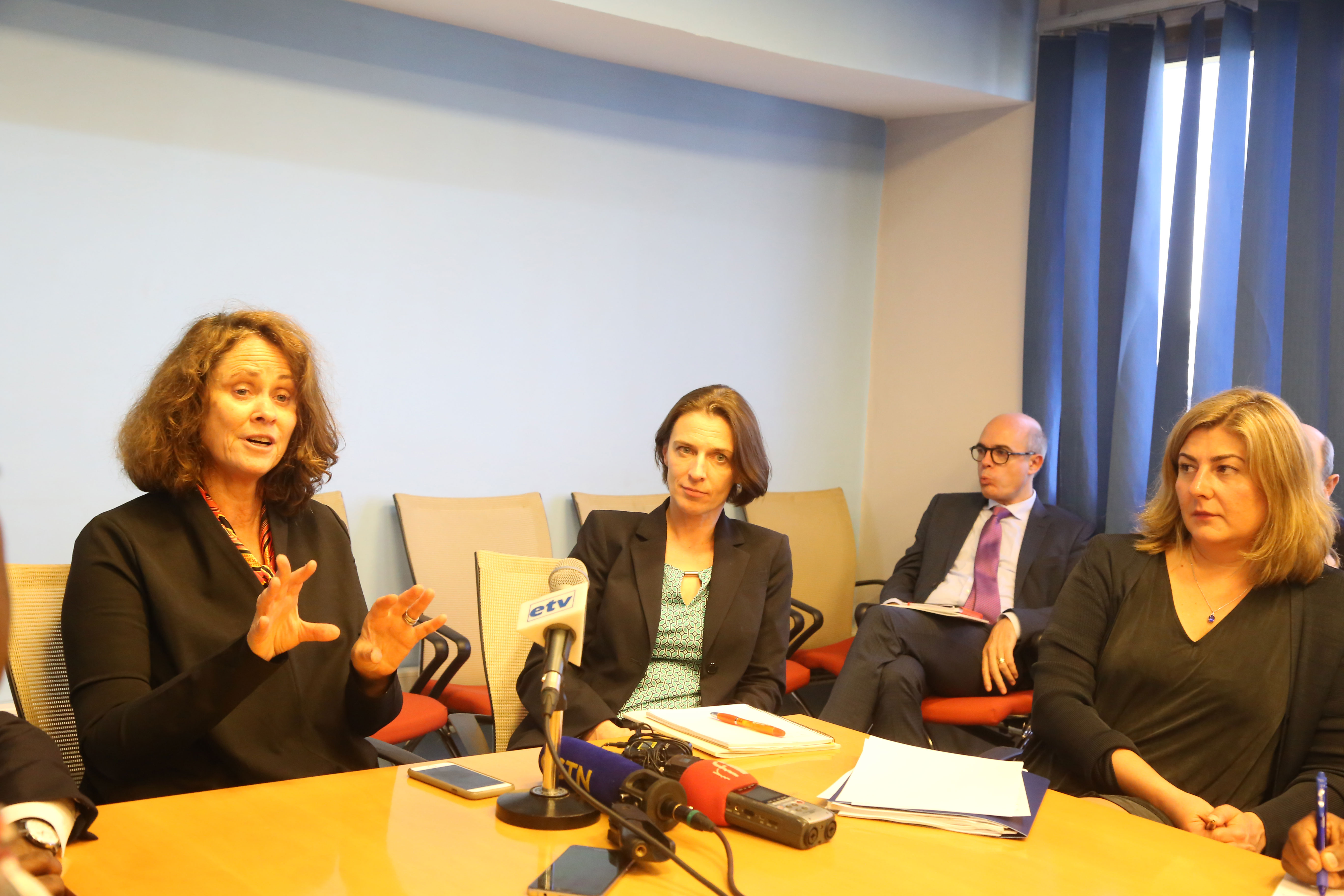
Fortune News | Dec 19,2021
In a move rattling the coffee industry, officials of the Ethiopian Coffee & Tea Authority have imposed a limit on outbound personal coffee carry-ons: two kilograms. This comes on the heels of requests the Authority placed four months ago, to reinforce the Ethiopian Customs Commission’s tight control around airports.
The backdrop to this decision is complicated, as is Ethiopia’s coffee itself. But the implications are vast, sending ripples through everything from the small roasters on the streets of Addis Abeba to the sprawling terminals of Bole International Airport.
Two weeks ago, Cheru Koru, deputy director of the Authority’s Market Development & Regulation Division, issued a letter announcing the restriction. A week after its enforcement, customs agents at Bole International Airport intercepted 2.3qtl of coffee.
Previous limits have been stringent but focused mainly on unroasted and ungrounded beans, as well as intra-regional movement. Restrictions from the last year resulted in coffee seizures valued at around 11.3 million Br.
However, there is a silver lining for international jet-setters and tourists who can buy from duty-free shops using foreign currency. According to Deputy Head of the Authority, Shafi Omer, this logic centres around foreign currency inflows – a vital lifeline for Ethiopia’s forex reserves.
“Passengers buying goods from terminal shops are presumably transacting in foreign currency, bolstering our national forex income,” he told Fortune. “Such travellers face no cap – they’re welcome to buy as they please.”
Passengers such as ex-pats and exporters who wish to carry over the restricted amount will need a permission letter from the Authority.
“Only licensed traders need high amounts,” he told Fortune.
A drive to protect and uplift the Ethiopian coffee brand’s global reputation underpins these changes, Shafi argued.
“Travellers have increasingly been filling their bags with inferior roasted coffee, tarnishing the reputation of our iconic product.”
Million Kibret, a consultant at the BDO Consulting’s Investment, concurred with the Authority’s concerns, referring to the sheer volume of travellers passing through Bole International Airport. The cumulative impact of smaller amounts of coffee being taken out of the country could be significant over the longer term. However, Million sees room for broader policy reforms, advocating an ease in the government’s stringent approach to foreign currency transactions.
“A recalibration of the tight constraints on forex transactions might be prudent,” he told Fortune.
But, as with any sweeping change, the immediate fallout has been noticeable. Over the past week, the 126 export standard and licensed coffee roasters in the city have been inundated with grievances. Customers are upset as they grapple with confiscations on the last leg of their visit.
Menelik Habtu, the erstwhile president of the Ethiopian Coffee Roasters Association and the proprietor of Typica Coffee, is among the aggrieved. He bemoaned a system that seemingly favours duty-free outlets, sidelining the rest.
“We risk becoming an afterthought,” he told Fortune, voicing concerns over the dwindling presence of businesses like his in airport duty-free locales. “Local turnover is what sustains my business,”
Incorporated with a modest capital of 300,000 Br, Menelik’s Typica Coffee sought to bridge a market gap, serving tourists and travellers keen on taking home distinct Ethiopian coffee brands. He refuted the Authority’s implications about the inferior quality of roasters’ coffee.
“Our sourcing is from the Ethiopian Commodity Exchange, meeting stringent export standards,” he asserted.
A 2021 United Nations Conference On Trade & Development report highlighted the uphill battle for roasters aspiring to tap into foreign markets. High branding and promotional costs inflate retail prices, adding another layer of challenge. Yet, despite these hurdles and the price dip, coffee remains the spine of Ethiopia’s export sector. It is an industry that fetched over 1.3 billion dollars this year, covering over one-fourth of total export revenues.
Gizat Worku, general manager of the Ethiopian Coffee Exporters Association, was surprised to learn of the new stipulations by the Authority. He believes it should not matter whether travellers carry five or more kilos as long as they have paid the asked price.
“Local prices are often higher than exports,” he told Fortune in a befuddled tone.
Gizat disclosed that the Association will discuss the issue with the Authority’s officials.
Industry giants have not been immune to the challenges posed by the recent changes.
Kirubel Seyoum, helming operations at Tomocca Coffee, a brand with a storied history dating back to 1954, recounted the dismay echoing through their 23 outlets and among their 300-strong workforce.
Tomocca’s operations, which churn out an impressive 200,000kg of coffee every quarter, operating at a mere 40pc capacity, illustrated their scale. Yet, Kirubel believes the recent decree overlooks potential setbacks for tourism.
“Vendors in duty-free zones at the airport source their coffee from us,” he disclosed. “Yet, our customers face seizures and have been venting their frustrations all week.”
He disclosed some of his customers even asked for their money back.
Those lucky few with a foothold in airport terminals see hope. One such beneficiary is OneKoo Coffee, a brand under the expansive umbrella of the Oromia Coffee Farmers Cooperative Union, with over 407 primary cooperatives as members. The Company’s processing plant, in the Gelan area on the outskirts of the capital, has a capacity to process 120kg in 20 minutes.
The union was established 24 years ago. It has branched out to four outlets and was leased a slot at the Bole International Airport two years ago. Its latest outlet is anticipated to come live in January at the Jubilee Palace, consuming 30 million Br investment.
OneKoo’s duty-free branch offers travellers a kilogram of roasted powder-packed coffee for 19 dollars. Despite past struggles with sales, General Manager Dejene Dadi is optimistic about the future.
“We anticipate better outcomes now,” he said, highlighting the brand’s growth trajectory and expansion plans.
PUBLISHED ON
Sep 30,2023 [ VOL
24 , NO
1222]

Fortune News | Dec 19,2021

Commentaries | Apr 22,2022

Commentaries | Feb 13,2021

Commentaries | Jul 24,2021

Fortune News | Apr 10,2023

Radar | Mar 16,2024

Radar | Nov 20,2021

Fortune News | Nov 21,2018

My Opinion | Jan 27,2024

Radar | Feb 22,2020

Dec 22 , 2024 . By TIZITA SHEWAFERAW
Charged with transforming colossal state-owned enterprises into modern and competitiv...

Aug 18 , 2024 . By AKSAH ITALO
Although predictable Yonas Zerihun's job in the ride-hailing service is not immune to...

Jul 28 , 2024 . By TIZITA SHEWAFERAW
Unhabitual, perhaps too many, Samuel Gebreyohannes, 38, used to occasionally enjoy a couple of beers at breakfast. However, he recently swit...

Jul 13 , 2024 . By AKSAH ITALO
Investors who rely on tractors, trucks, and field vehicles for commuting, transporting commodities, and f...

Jun 28 , 2025
Meseret Damtie, the assertive auditor general, has never been shy about naming names...

Jun 21 , 2025
A well-worn adage says, “Budget is not destiny, but it is direction.” Examining t...

Jun 14 , 2025
Yet again, the Horn of Africa is bracing for trouble. A region already frayed by wars...

Jun 7 , 2025
Few promises shine brighter in Addis Abeba than the pledge of a roof for every family...